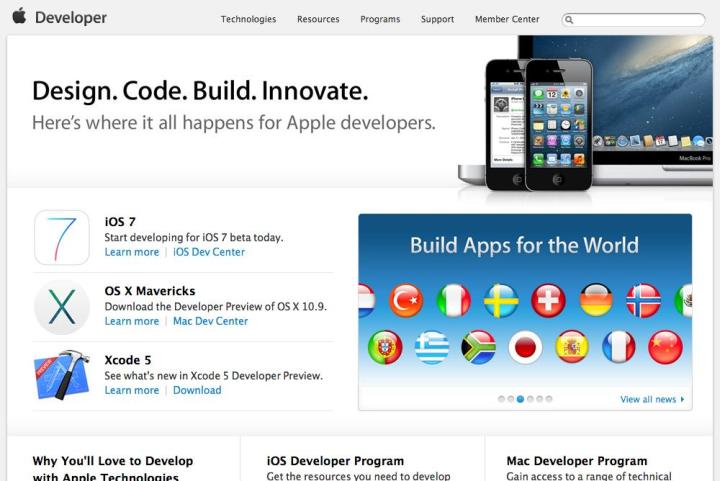
It’s taken a while but Apple on Saturday finally fully restored its developer site following a security breach more than three weeks ago.
The news will come as a relief to developers eager to continue with work on their apps and other software, as well as those working on the latest betas of iOS 7, Xcode 5, and OS X Mavericks.
The site, which provides third-party software developers with app-related resources, information and downloads, was taken down by the Cupertino company on July 18 and replaced with a message explaining that “maintenance work” was taking place. However, after several days of silence and with developers still unable to access many parts of the site, Apple revealed that the situation was more serious, explaining that “an intruder” had entered the site in an effort to steal personal information.
The tech giant said that while it was certain that sensitive personal information of registered developers had not been accessed, it was possible that the names, mailing addresses, and/or email addresses of some developers could have been stolen.
In an effort to keep developers up to date regarding its site restoration work, Apple put up a new “system status” page (below) a couple of weeks back showing when each element of the developer site came back online.
On July 25, a week after the outage began, only 2 of 15 elements were operational, though as of Sunday all were once again functioning as before.

Apple, as you might expect, has released few details about the damaging incident, so it’s not known if the company has any leads on who the perpetrator may have been or precisely what steps it’s taken to bolster security on its site.
With iOS 7 – its all-new mobile operating system for iDevices – due to be rolled out globally in the next couple of months, the company will understandably be relieved that developers can once again continue with the important task of tweaking and testing the much-anticipated software.


